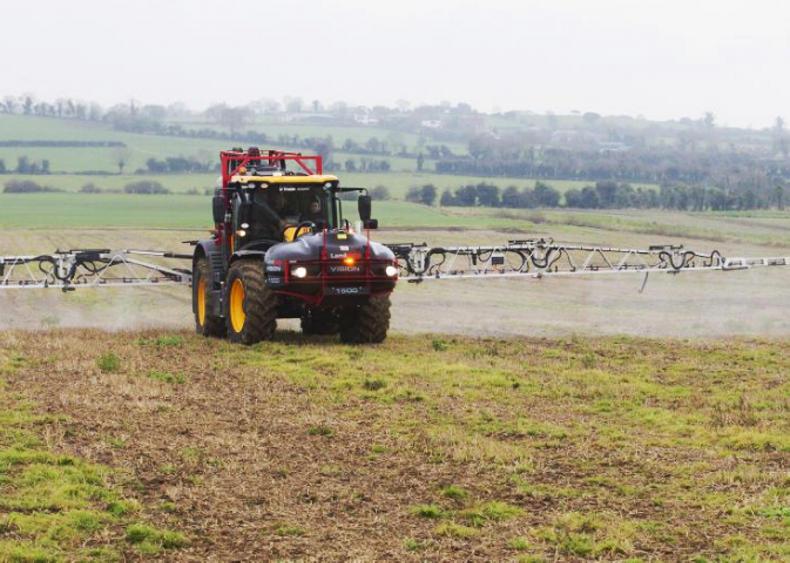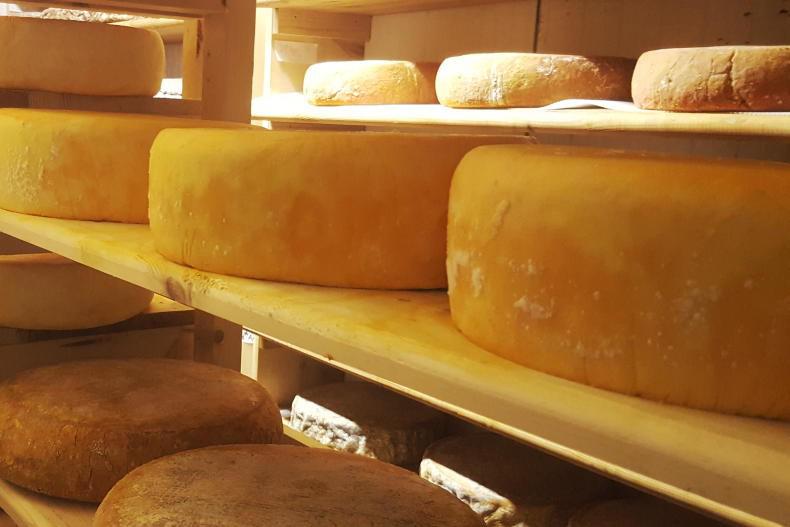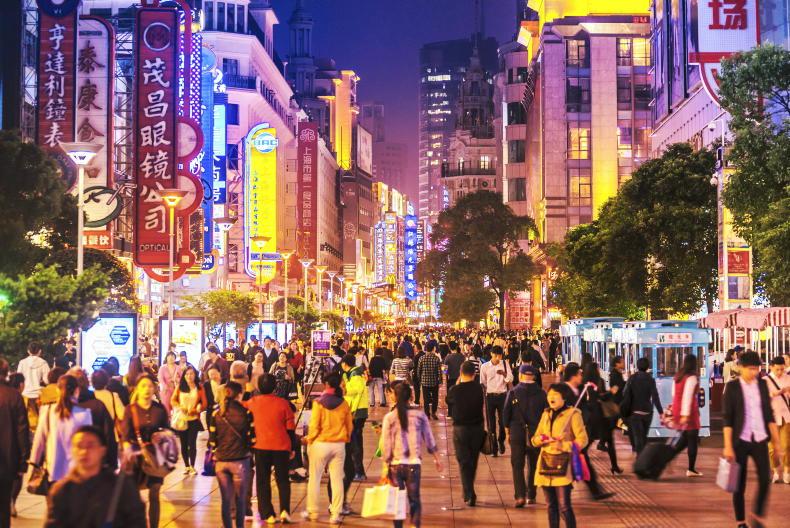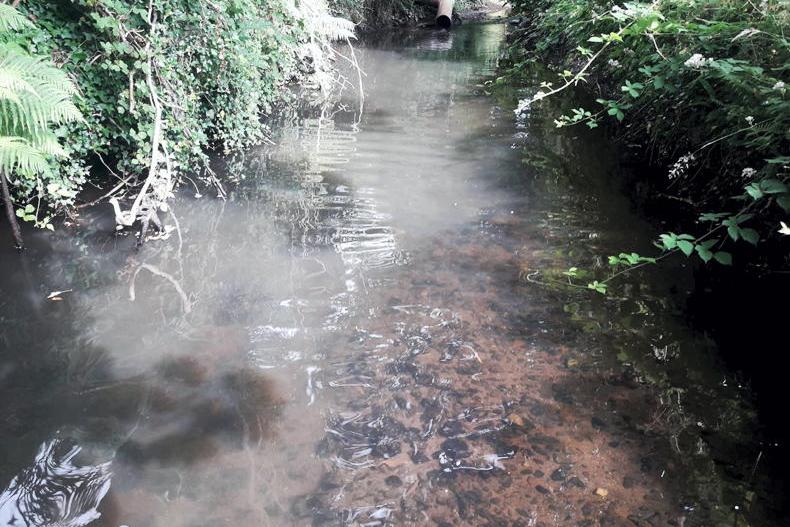A European citizens' initiative (ECI) is currently collecting signatures to "ban glyphosate and protect people and the environment from toxic pesticides". The initiative had more than 693,000 signatures at the latest count, with a target of one million.
How does the ECI work?
ECIs were introduced by the Lisbon Treaty to give European citizens a voice in EU law-making. European regulations set strict rules to allow an ECI: first, its promoters must register their initiative with the European Commission and establish that they are calling for a valid legislative proposal that is within the Commission's remit. The Stop Glyphosate campaign cleared that hurdle in January.
Then, the ECI has one year to collect one million signatures. They must come from at least seven EU member states, with a minimum number for each member state relative to its population size – 9,000 in the case of Ireland.
If this threshold is met, the European Commission must consider the legislative proposal, but it is not obliged to follow it. Whatever its decision, the Commission must give an explanation within three months.
Who is behind the anti-glyphosate ECI?
The initiative is co-ordinated by WeMove.eu, which describes itself as "a citizen's movement campaigning for a better Europe", and funded by Campact, a German progressive political campaign group, which donated €100,000 to the campaign.
Multiple organisations around Europe are supporting the signature collection effort, including international conservation groups with representation in Ireland, such as Greenpeace and Friends of the Earth, and the Irish-based progressive advocacy group Uplift. Others include trade unions, consumer bodies and farming organisations, such as France's Conférédation Paysanne and Austria's ÖBV.
What are their arguments?
The ECI claims that glyphosate's "impacts on the environment and biodiversity are clearly documented".
In addition, the campaign describes the chemical as "a serious threat to human health," citing the 2015 classification of glyphosate as “probably carcinogenic to humans” by the World Health Organisation's International Agency for Research on Cancer (IARC).
The ECI also argues that the EU's evaluation of pesticides before authorisation "largely rely on unpublished studies that are commissioned and submitted by the pesticide producers themselves".
Campaigners want all studies used to evaluate the risk of pesticides to be published. They also call for a change to the current process, which lets chemical manufacturers choose in which country a substance is first evaluated before the report is reviewed at EU level.
Does glyphosate cause cancer?
The IARC report cited by campaigners classifies glyphosate in category 2A – "probably carcinogenic to humans".
"This category is used when there is limited evidence of carcinogenicity in humans and sufficient evidence of carcinogenicity in experimental animals," the agency explained at the time.
Other probable causes of cancer classified in category 2A include creosote, consumption of red meat, drinking very hot beverages and working night shifts or as a barber or hairdresser.
The classification stemmed from limited evidence that glyphosate may cause non-Hodgkin lymphoma, a form of cancer, from agricultural exposure. The IARC cited studies in the US, Canada and Sweden. "There is convincing evidence that glyphosate also can cause cancer in laboratory animals," the IARC added. The agency cited US studies on tumours in mice.
It also referred to one study showing damage to human cells in a community close to glyphosate spraying. There was no reference to the toxicity of glyphosate residue in food or water.
At EU level, the European Food Safety Agency last year and the European Chemicals Agency last month concluded that glyphosate did not pose a risk of cancer or genetic mutation in humans.
Is glyphosate the only pesticide targeted?
The ECI against glyphosate has a broader objective of "EU-wide mandatory reduction targets for pesticide use, with a view to achieving a pesticide-free future". They are calling for a stricter implementation of an existing EU directive requiring that pesticides be used only when other methods have failed.
The campaign argues that "a growing body of evidence also shows how the use of pesticides undermines the health of farmers and their families, as well as the wider population".
Its promoters add that "the only way to avoid the risks and dangers posed by pesticides is to phase out their use in the long term. Non-chemical alternatives to pest and weed management are already available, but need political and financial support to be mainstreamed".
This is the language the European Commission will have to consider putting into law if the initiative collects one million signatures.
While this is not part of the initiative's content, many of its promoters have singled out glyphosate because its is part of a wider business combining herbicides and so-called Roundup-ready seeds, with Monsanto developing many of these technologies.
The opposition to glyphosate includes a strand of campaigning against agribusiness and globalisation, independently of the debate on the chemical's health effects.
In recent weeks, activists have staged a so-called international citizens' tribunal that found the multinational company guilty of "ecocide", or crimes against the environment. Monsanto refused to take part in the event.
#Monsanto’s claims of safety of #glyphosate are not based on sound science but on the attempt of manipulating it https://t.co/O97QHeGbiC pic.twitter.com/FTrYKlfsLx
— Seed Freedom (@occupytheseed) April 18, 2017
Has the campaign led to legislative change elswewhere?
Last year's decision by the European Commission to reauthorise glyphosate for 18 months only followed the failure of the usual process by which experts mandated by EU member states agree on which chemicals are safe to use for longer periods of time – previously 15 years in the case of glyphosate.
France and Malta opposed the herbicide ingredient's re-licensing, reflecting their increasingly strict domestic legislation. Seven other member states including Germany abstained.
France is the largest agricultural producer to have introduced a partial ban on glyphosate. Since last June, herbicides combining the chemical with another ingredient, tallowamine, have been banned in the country. France obtained a similar ban on combination with POE-tallowamine in the EU reauthorisation of glyphosate that month, as well as softer restrictions on pre-harvest burn-off and spraying in public amenities.
Last January, the sale of all pesticides to non-professional users became illegal in France. French legislation also provides for the phasing out of neonicotinoid insecticides between 2018 and 2020. Local authorities have been instructed to stop spraying around schools and hospitals.
France and Malta have stopped short of imposing an outright ban on glyphosate at home, instead campaigning to have its authoriation stopped at EU level.
French Environment Minister Ségolène Royal expressed "consternation" at ECHA's classification of the chemical as non-carcinogenic last month and called again on "European Environment ministers to oppose the renewal of its authorisation in the long run".
The presidential and legislative elections scheduled between this Sunday and mid-June may change the French position, with Royal's ruling Socialist party performing poorly in opinion polls.
While there are no figures available for glyphosate usage, Eurostat statistics for overall pesticide sales – of which glyphosate-based products get the lion's share – show that France was their heaviest user in Europe, with 30,000t sold in 2015. Ireland uses 2,000t of herbicides per year.
What happens next?
The European Commission has until the end of this year to make a decision on the future of glyphosate.
Agriculture Commissioner Phil Hogan has expressed a wish to see it reauthorised for at least 10 years.
The committee process involving member states has attracted much criticism after it failed to find an agreement on glyphosate last year, but any reform is unlikely to be completed this year.
Campaigning and politics, as much as scientific reports, will have an important role to play. Farming organisations have been lobbying decision-makers in Brussels for months, and farmers have begun to campaign in favour of glyphosate on social media themselves.
We need farmers and crofters in the fight to keep glyphosate – Tell your local politicians that #glyphosateisvital – https://t.co/0CpESYse5h pic.twitter.com/3amIsA4fp9
— NFU Scotland (@NFUStweets) April 19, 2017










SHARING OPTIONS